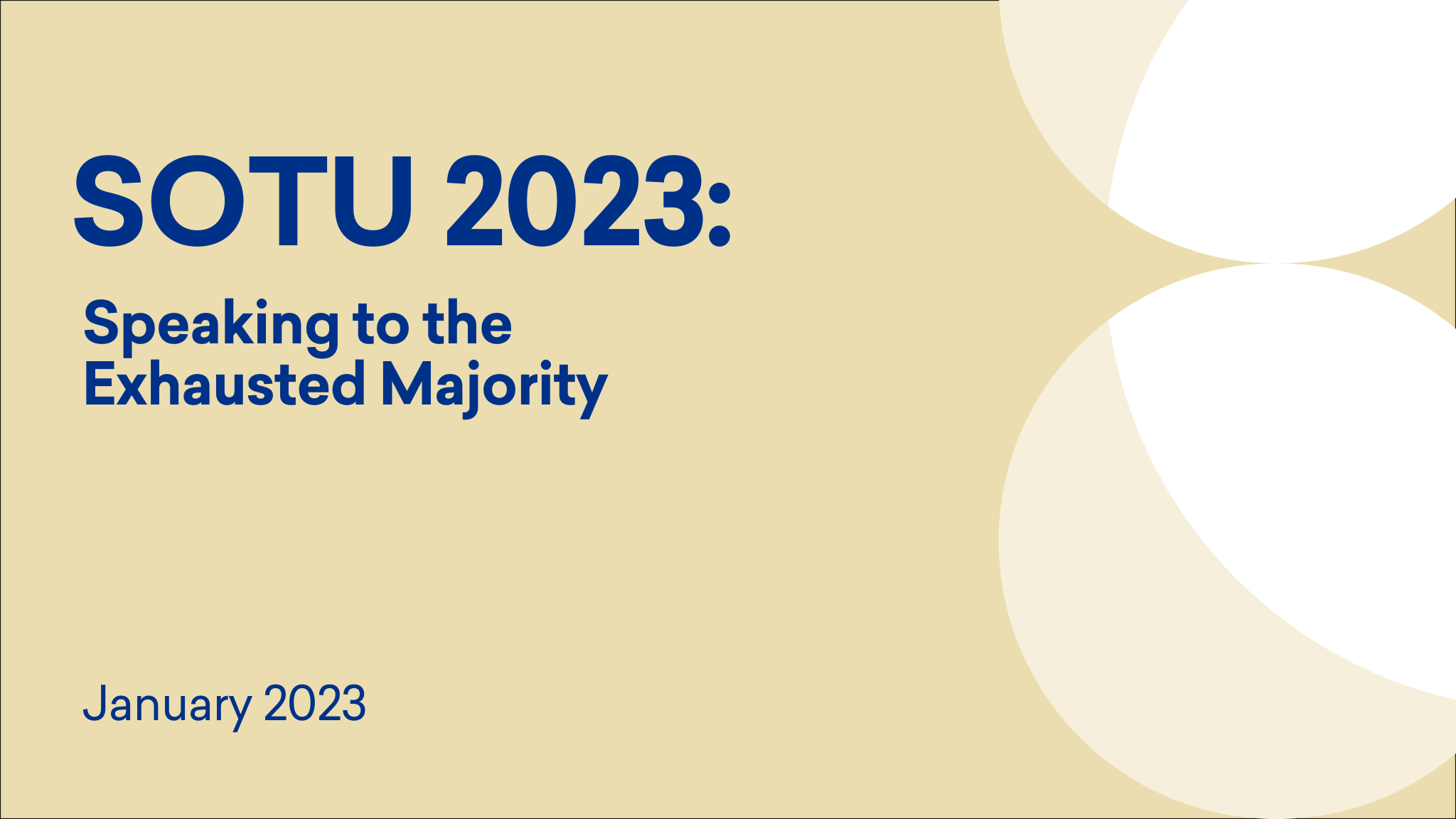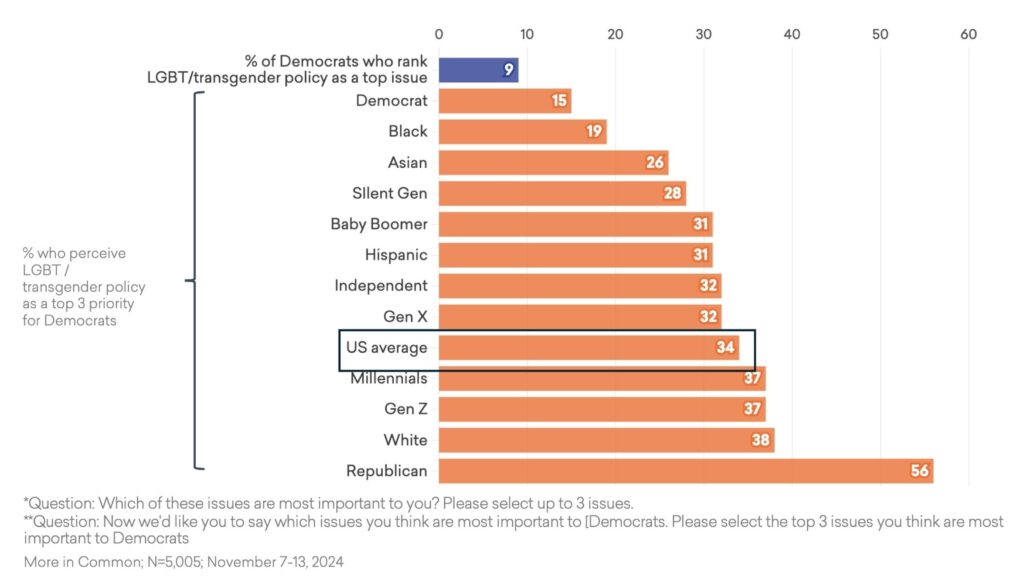
25 January 2023
Insights on the 2024 Election Outcome
November 28, 2024
Democracy & Elections
Immediately following the 2024 election, More in Common asked 5,005 Americans, representative of the country, questions to better understand what shaped their voting decisions, their views on polarization-related issues – and most importantly, if they accurately understood one another.
Inflation is the top concern for all types of Americans and they believe Republicans share it much more than Democrats.

Perceptions of parties’ priorities appear to be influenced by the parties’ ideological wings.

Across demographic groups, Americans misperceive transgender policy as a leading priority for Democrats.

of Americans decided which presidential candidate to vote for in the final days before the election.
the amount of Republicans who now trust election officials as compared to June 2024 (50% vs 24%).
of Americans feel that we “need to heal as a nation.”
Beyond priority gaps, we found other important trends.
Late deciders swung towards Trump.
Views on immigration, the leading non-economic issue for voters, are nuanced.
Republicans trust in elections doubled following the Trump victory.
Americans of both parties overlook commonality in attitudes towards the country.
Polling Firm: More in Common
Sample Size: N = 5,005 US General Population
Fieldwork Dates: November 7 to November 13, 2024
Margin of Error: +/- 1.4 for US avg.
Explore the depth of our research at your fingertips. Get the complete insights by downloading the full report today.
What unites and divides Americans today? This newsletter takes a closer look at issues pressing on America’s social and political fabric and provides recommendations for how to strengthen ties to keep us bound together.